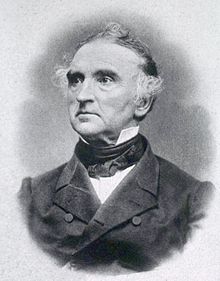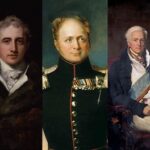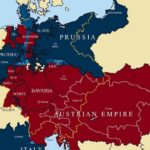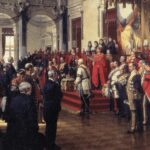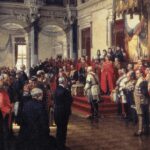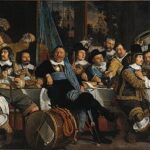April 18, 1679
Death of Christian Hofmann von Hofmannswaldau in Breslau, Silesia (now Poland). Hofmannswaldau was one of the leading poets of the Baroque period in German literature.
April 18, 1819
Birth of Franz von Suppe in Spalato, Austrian Empire (now in Croatia). Suppe was a conductor and composer of comic operas in Vienna. Among his operas are Leichte kavallerie (1866), Fatinitza (1876) and Boccaccio (1879).
April 18, 1863
Birth of Leopold Graf von Berchtold in Vienna, Austria. Berchtold was the foreign minister of Austria-Hungary who presented an ultimatum to Serbia in 1914 after the assassination of Franz Ferdinand with such terms that Serbian rejection was assured. (He sought a preventive war with Serbia.) The subsequent conflict between Austria-Hungary and Serbia ignited World War I.
April 18, 1873
Death of the chemist Justus von Liebig (1803-1873) in Darmstadt, Germany. Von Liebig studied with Karl Wilhelm Gottlob Kastner at the universities of Bonn and Erlangen. Von Liebig became a teacher at the University of Giessen, where he established the first laboratory to teach the methods of chemical research. That laboratory became the model for chemical education worldwide. In 1852 von Liebig took a position at the University of Munich. His greatest contributions to chemistry were in the areas of organic chemistry and agricultural chemistry. He founded and published in the journal Annalen der Pharmacie which later changed its name to Annalen der Chemie.
April 18, 1951
Signing of the Treaty of Paris establishing the European Coal and Steel Community.
April 18, 1955
Albert Einstein dies in Princeton, New Jersey (born in Ulm, Germany). As a child, Einstein lived in Munich, Milan and Zürich. He taught for a time at the polytechnic in Zürich. In 1914, having established a reputation, he accepted a position at the Prussian Academy of Sciences in Berlin. A life-long pacifist he opposed World War I and when Adolf Hitler came to power in 1933, at age 54, he rejected his German citizenship and immigrated to the United States. In America he accepted a research position at the Institute for Advanced Study in Princeton, New Jersey. Although he was a pacifist, he was so horrified by the Nazis that he urged armament for the other European nations to resist Germany. When he became aware of the work Hahn, Strassmann and Meitner were doing with nuclear fission, he urged President Roosevelt to immediate action in atomic research.
Back to Today in German History Calendar
